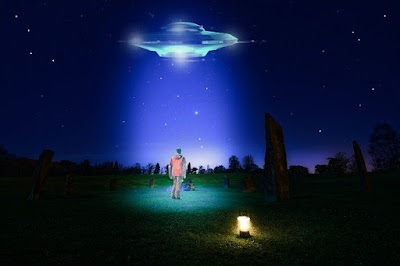Many of us know about the iconic Hollywood movie Ghostbusters, and have seen the over the top, entertaining version of
busting ghosts, ghouls and other ghastly creatures from the beyond. But the fact is that ghost hunting, and paranormal
investigation in general, is a real profession, and one that has become quite popular in recent times!
Depiction of purported
paranormal activity, haunted locations, and similar topics in popular media might have well contributed to this increasing
interest in paranormal investigation.
Paranormal investigation is a blanket term usually used to describe the investigation of any paranormal activity, and the collection of evidence for paranormal activity. Ghost hunting falls into a similar category and involves investigating locations that are thought to have been haunted by spirits and ghosts.
So, how do ghost hunters actually go about finding evidence for paranormal goings-on? Well, there are high tech ways to do it, using extensive equipment that can measure various markers of extraordinary activity, and low tech methods which involve researching history, taking oral histories, interviewing witnesses etc. Some equipment used by paranormal investigators includes electromagnetic field meters (EMF), infra-red and night vision, audio and video recording equipment etc.
Different groups and individuals practicing ghost searching may use different equipment, but in general investigators rely on video and audio recording to look for anomalies in normal background noise and images on the location being investigated. Investigators also widely use EMFs to find inexplicable changes in electromagnetic fields.
Infra-red technology, motion sensors, EMF Meters and sound sensors are also used extensively to observe any inexplicable movements and sound within the area. Historical research is used to find possible clues into why the location may be haunted. Interviewing skills are also essential for paranormal investigators to be able to get information from witnesses.
But despite the use of scientific techniques and instruments, paranormal investigation is not considered a truly scientific endeavour by mainstream science, and it usually considered a pseudoscience. Just as there is growing enthusiasm for the paranormal, there is also a healthy amount of scepticism about the existence of paranormal activity in general and paranormal investigation as a valid scientific practice in particular.
Paranormal investigation is not exactly something you can hope to
get a university degree in, but there are independent training academies and groups dedicated to paranormal investigation.
There are various topics you can specialise in within the field of the paranormal. For instance, you can achieve basic
training in paranormal investigation techniques and go on to specialise in an area of your interest – such as alien
investigations, UFO sightings, unusual audio and visual phenomenon, etc. Becoming part of local or national, or international
groups and bodies of investigators and professionals working in the field of the paranormal can help you broaden your
knowledge and create stronger grounding as a professional.
Once you have achieved the skills and training to work, you can start your own practice as a freelance investigator, or
become part of a network. There are many avenues to promote your skills and interest, much like any other professional
practice.
You can have your own website; do Internet and direct mail marketing etc. It is usually useful to subscribe to a
publication within the field for tips on finding work, and to keep your knowledge up-to-date. These are some basic steps to
hone your interest in paranormal activity and gain investigation skills within the field.
Richard McMunn is the director and founder of How2become.com and the author of this
article. Richard spent 17 years in the Fire Service and now provides insider recruitment training for those looking to join
the fire service, police service and also the armed forces. You can also connect with How2become on Twitter








No comments:
Post a Comment